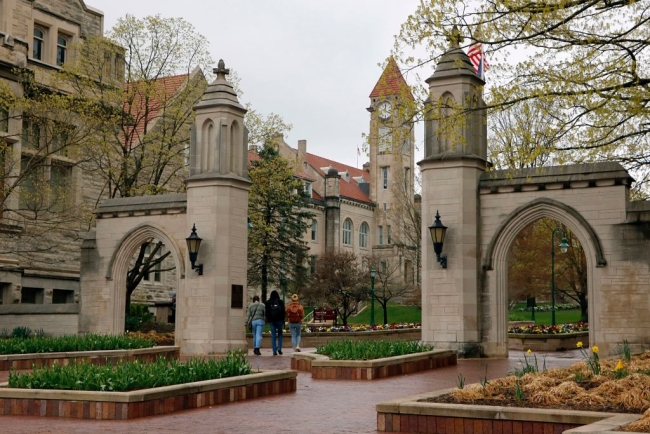You have /5 articles left.
Sign up for a free account or log in.

The Carnegie Classifications will remain at Indiana for now.
Education Images/Contributor/Getty Images
The Carnegie Classification of Institutions of Higher Education—long revered as an objective categorization of American colleges and universities—will no longer move to Albion College after Mathew Johnson, the former president of Albion, resigned last month.
“While the Carnegie Foundation did anticipate coming to an agreement with Albion College based on the outgoing president’s longstanding engagement with the Elective Classifications, we had not yet formalized any agreement,” Paul LeMahieu, senior vice president at the Carnegie Foundation, wrote in an email. “In light of the president’s departure, we are considering new institutional partnerships to fulfill this role.”
When Albion announced Johnson’s resignation on Christmas Eve, college officials wrote in a statement that Johnson would depart the college to serve as president of the Commission for Public Purpose in Higher Education, in partnership with the Carnegie Foundation. The commission was created by Albion and is “responsible for the stewardship and continuous development of the basic and elective classification systems of higher education institutions,” according to the college’s announcement.
However, since the Carnegie Foundation is now seeking a new home for its basic and elective classifications, it will no longer partner with the commission, according to Lisa Gonzales, a Carnegie Foundation spokesperson. Further, Johnson “no longer has an affiliation with the Carnegie Foundation,” Gonzales wrote in an email. “He will not be serving as an advisor for the Carnegie Classifications.”
An Albion College spokesperson declined to comment on the foundation’s decision. Johnson also declined to comment on his role with the foundation.
Selecting a home base for the classification system is not a small deal, said Philip Altbach, founding director and research professor at the Center for International Higher Education at Boston College. The basic classification groups all accredited U.S. colleges and universities into a handful of types that describe the institution’s purpose. Elective classifications are voluntary and serve to recognize institutions for their participation in a variety of subject areas. Institutions use elective classifications as a benchmark for future improvement in those areas.
Whichever institution houses the classification system has great control over its direction, Altbach said.
“Whoever is housing it can shift its focus,” he said. “It’s not about where—it’s about the leadership vision.”
The Carnegie Foundation’s decision to move the classification system from Indiana University to Albion—a small private college in Michigan—left Altbach and other higher education professionals scratching their heads.
“It really needs to go to a place that has relevant expertise in the core of what the classification is—higher ed,” Altbach said.
The foundation selected Albion in part because Johnson had long been involved with the elective classifications. Albion was home to the elective classification for community engagement since 2020, when Johnson first arrived at the college. Previously, Johnson oversaw the community engagement classification at Brown University, where he was an associate dean and executive director of the Swearer Center. As he was leaving Brown, he was told to take the community engagement classification with him, he told Inside Higher Ed.
In recent history, the classification system has tended to follow its leaders. When Alexander McCormick, the longtime overseer of the classification system at the Carnegie Foundation, took a new job at Indiana University, the classification system moved with him, according to Victor M. H. Borden, current project director of the classifications at Indiana University.
“We decided to put in our bid, but it was noncompetitive,” Borden said. “They were saying, ‘If you want it, you have it.’”
Now Borden plans to retire, and so the classifications seek a new home.
“The Carnegie Classifications is larger than one person,” Gonzales wrote. “We are currently exploring institutional options that will fulfill our demanding criteria: a commitment to educational equity, significant institutional credibility, deep capacity to engage and involve the higher education community in the refinement and use of the Classifications, policy expertise, analytic and technical capacity, and the ability to bring to bear the requisite resources to support the ongoing development and administration of the Classifications.”
Officials hope to select a new home for the classification system within the quarter. In the meantime, it will remain at Indiana University.








